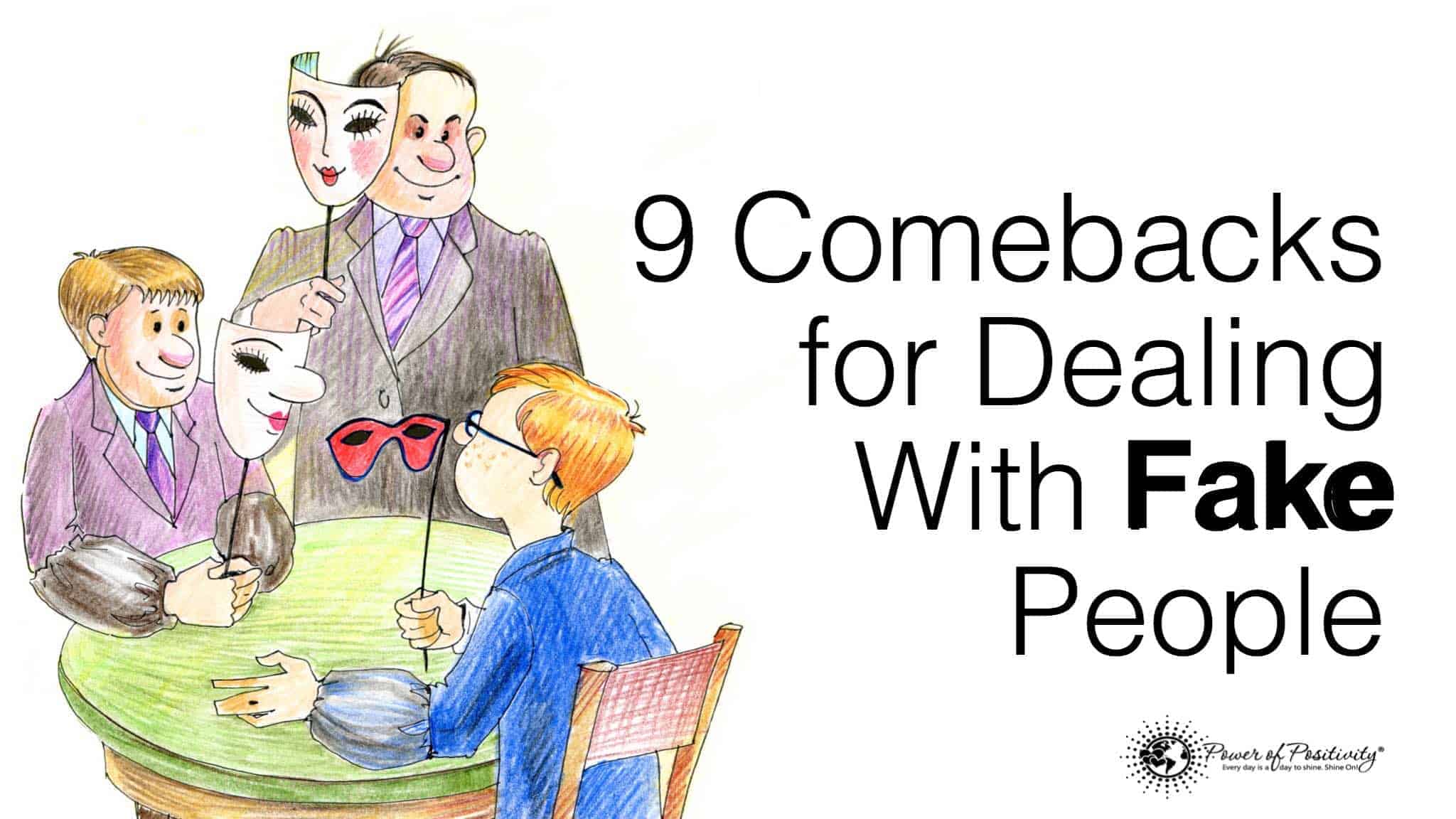As a social species, we humans get to make friends with a lot of great people; and then there are the fake people you meet who make you want to comeback at them with ‘What is wrong with you?’ Our gut tells us that something is not quite right about the words and feelings that come from a fake person and we want to avoid them.
The more negative, emotionally-draining, fake people you can eliminate from your life, the better off you will feel. Surrounding yourself with only positive, genuine people is more likely to give you the support you need to help you reach your goals.
Getting rid of every fake person in your life might not be possible (in the case of a close relative), nor is it the kindest thing you can do.
If you can’t avoid a faker, you have two choices:
1) You can put up with their fake behavior, or
2) You can do something about it.
Instead of avoiding contact, you can try to change the ‘fake’ behavior and help a fake person change into an authentic person. Let’s look at 9 comebacks to include in your conversation when you deal with a fake person.
9 Comebacks For Dealing With Fake People
As you may remember from our article What Is Your Social IQ? we discussed how our ability to detect trustworthiness is one of the most important skills we can learn. If we are skilled at knowing who to trust, we know who is best to invest our time and energy with, and who to reject.
Researchers at the University of Miami looked at how people determine if a smile is fake or not. They discovered something very interesting, which is that people who have been socially rejected before are better able to detect true smiles from fake ‘happy’ smiles.
The motivation to belong to a group is a strong instinct in people. That’s because earlier in our evolution working together could mean the difference between surviving to live another day or not. But the ability to get what you want by manipulating is an unfortunate negative aspect of fake people in social groups.
The scientists say ‘Once rejected, people are left with a strong desire to be accepted, which leads them toward…partners with whom they might affiliate.’ Once we have been shunned, we are that much more motivated to get back in the good graces of a group, so we learn the subtle facial expressions of a fake smile and we try harder to earn the real one.
1. ‘I get the sense that you aren’t comfortable around me.’
Someone who is being fake is possibly just trying (awkwardly) to fit in and be liked. When you make this statement, you give the fake person the opportunity to talk about their level of comfort around you and others.
If the fake person responds by continuing to be pretend to be someone they are not, you now know that they are projecting an image that they are comfortable with. Getting them to lower their defensive shield might be more of a challenge.
2. Match their fake expressions and language
When you mirror the fake smile that you see from a fake person and use the same fake language back to them, the person doing the faking is often surprised. Seeing that you are trying to play their game will not be what they were expecting. You are showing the fake person that you can be a good actor too.
3. Ask for something that you want or need
A fake person is usually trying to manipulate you. Even if you aren’t sure what they are trying to accomplish by being fake, ask for something that you want. Asking for help is also a social way of reaching out to connect genuinely with a person.
4. ‘I need you to be honest with me.’
Saying your need for honesty is about as forthright as you can get. Asking someone to express their honest, genuine emotions rather than the fake ones that they are giving you is asking to be treated with respect.
5. Express your appreciation for authentic people
Talk about how important it is to you to be around people who are true to themselves. Continue to do this until the fake person drops their fake front or moves on to another person.
6. Point out something that is untrue about what they have said
Find a specific example in their language that is something false, fake, or untrue and call them on it. You might say ‘That’s not what you said yesterday when we were talked on the phone.’ Be prepared for the fake person to respond with anger and keep your cool.
7. ‘I’d like to talk more, but you don’t seem quite yourself right now.’
Again, this type of statement rejects the fakeness of the person but embraces the opportunity to connect with them when they can be genuine.

8. ‘Let’s talk later when you feel more at ease.’
Give yourself and the fake person some space and time apart. You acknowledge that you are sensing some emotional conflict and stress on their part while allowing some distance to calm and refresh your own mindset after dealing with the fake person.
9. Ask them to be authentic around you
You might say ‘I know you like to be part of our group, and you are welcome to join us. I would much prefer it if you would just relax and be yourself around us in the future.’


















